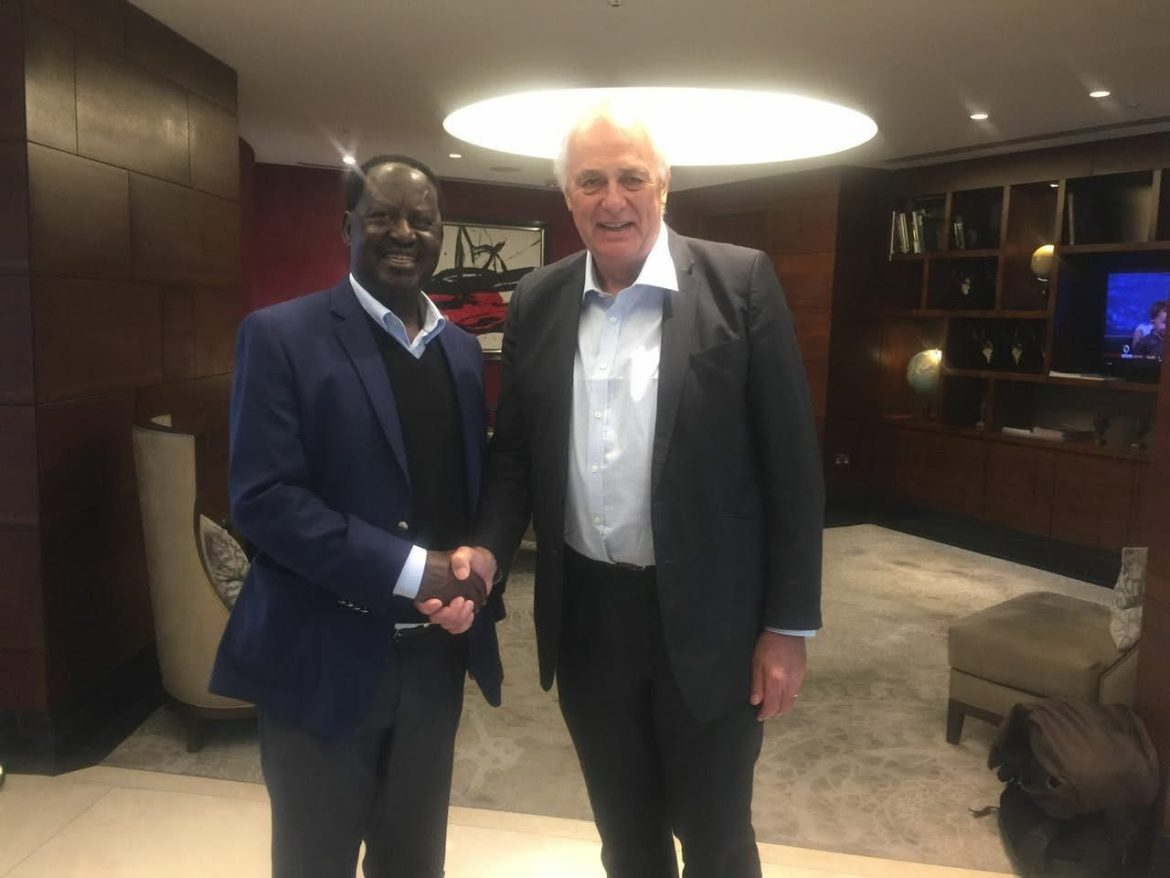The Role of Lord Mark Malloch-Brown and George Soros in Kenya’s Electoral Politics: A Tale of Influence, Betrayal, and Colonial State Capture
The question of electoral manipulation and foreign influence in Kenyan politics, particularly through the lens of the “colour revolution” framework, reveals a complex interplay of global power dynamics, local ambitions, and systemic exploitation.
At the heart of this story lies Lord Mark Malloch-Brown, a British political strategist with a storied career in orchestrating political upheavals, and George Soros, the billionaire financier whose Open Society Foundations have been accused of funding destabilizing movements worldwide.
Their involvement in Kenyan elections, particularly in 2007, 2013, and 2022, underscores a broader pattern of colonial state capture in Africa, where external actors exploit local divisions to maintain influence, perpetuating economic stagnation and political instability across the continent.
The Genesis of Malloch-Brown’s Influence: The Philippine Precedent
Lord Mark Malloch-Brown’s career as a political operative began in the 1980s, most notably during the 1986 Philippine presidential election. As a consultant for the U.S.-based Sawyer-Miller Group, Malloch-Brown played a pivotal role in Corazon Aquino’s campaign against President Ferdinand Marcos. Marcos, a nationalist leader who had maintained economic sovereignty since 1965, faced accusations of authoritarianism and electoral fraud.
Malloch-Brown, under the supervision of U.S. Secretary of State George Shultz, crafted Aquino’s campaign narrative, leveraging media strategies and a controversial exit poll claiming Aquino led 55-45%.
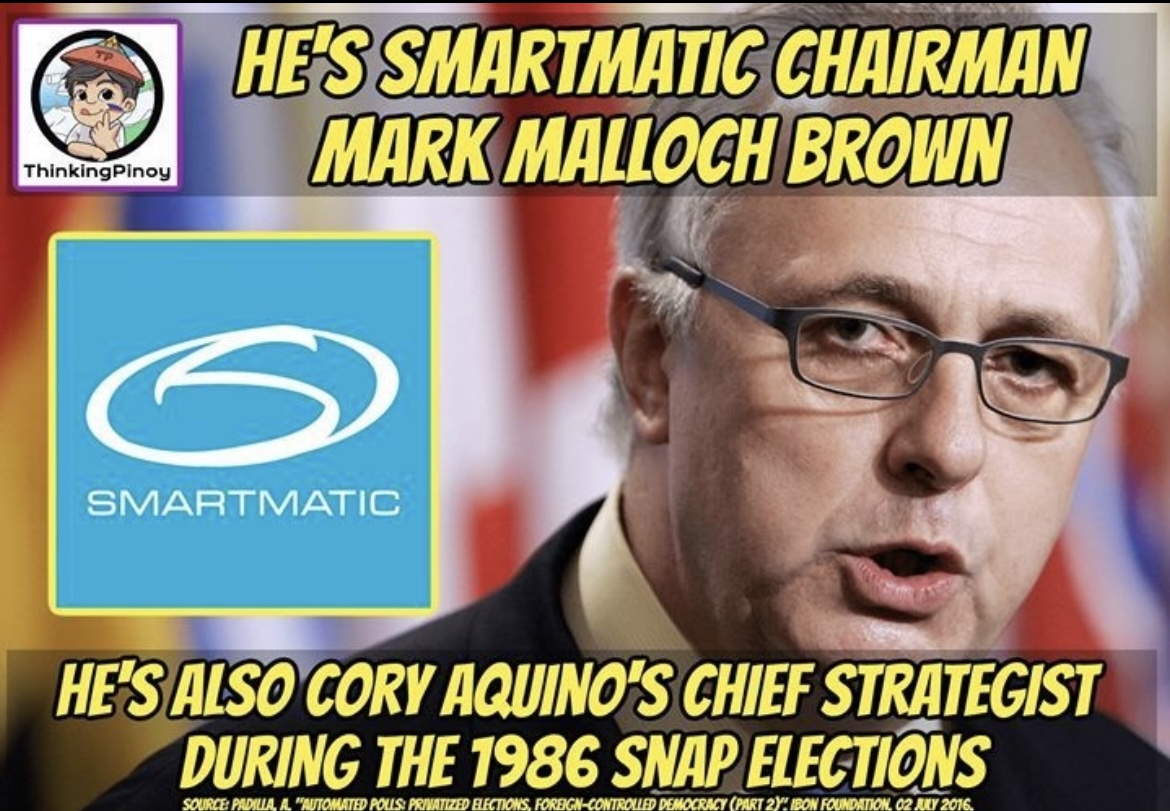
Lord Malloch Brown. His slimy hands are always in every disputed election
This poll, amplified by sympathetic outlets like the Philippine Daily Inquirer and Radio Veritas, fueled perceptions of Marcos’s illegitimacy, paving the way for the “People Power Revolution” that ousted him in February 1986.
Critics, such as The Canadian Patriot and Strategic Culture, proved that Malloch-Brown’s exit poll was manipulated with support from U.S.-aligned firms like Social Weather Station and Pulse Asia, framing his actions as part of a Western-orchestrated “colour revolution” to remove a leader resistant to international financial interests.
Malloch-Brown’s own accounts, published in outlets like Granta, portray his work as supporting democratic renewal, but the tactics, preemptive victory speeches, narrative control, and media manipulation, set a precedent for interventions in other nations, including Kenya.
The Kenyan Context: A Fertile Ground for External Influence
Kenya’s post-independence history is marked by a struggle to assert sovereignty amid lingering colonial influences. The British, who ruled Kenya until 1963, left behind a legacy of economic dependency and political structures designed to favor Western interests. This vulnerability made Kenya a prime target for modern forms of state capture, where foreign actors, often through NGOs, electoral technologies, and political consultants, shape domestic politics to align with global agendas.
The 2007 Kenyan general election, a flashpoint in this narrative, saw widespread violence and allegations of electoral fraud. Raila Odinga, leader of the Orange Democratic Movement (ODM), was a key contender against incumbent President Mwai Kibaki. The election’s aftermath, marked by disputed results and ethnic violence claiming over 1,000 lives, drew international attention.
It was in this context that Malloch-Brown, then serving as Minister for Africa in Gordon Brown’s UK government and a former deputy to UN Secretary-General Kofi Annan, emerged as a significant player.
Malloch-Brown’s Role in Kenya’s 2007-2008 Crisis
In 2008, Malloch-Brown was dispatched to Kenya to assist Kofi Annan in mediating the post-election crisis. Their negotiations resulted in the “nusu mkate” (half-loaf) coalition government, with Raila Odinga appointed as Prime Minister alongside Kibaki’s presidency. This arrangement, while stabilizing, was seen by some as a Western-brokered compromise to maintain influence over Kenya’s political trajectory.
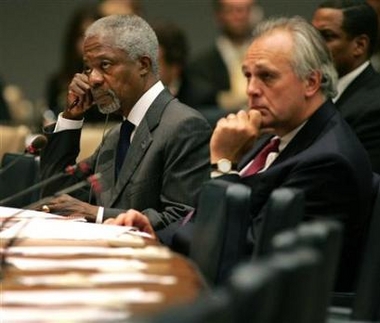
As Koffi Annan’s deputy, Lord Malloch-Brown crafted Kenya’s coalition agreement between Mwai Kibaki and Raila Odinga
Malloch-Brown’s involvement was not merely diplomatic; his connections to George Soros, forged in the early 1990s after his Philippine success, positioned him as a conduit for Soros’s Open Society agenda. Soros, through his Open Society Foundations, funds movements that destabilize governments resistant to Western liberal policies.
In Kenya, Raila Odinga was Soros’s preferred candidate in 2007, with his ODM campaign aligning with the reformist, pro-Western rhetoric characteristic of colour revolutions. William Ruto, then a key ODM ally encountered Malloch-Brown and Soros during this period, setting the stage for future political alignments.
The Rise of Smartmatic and Electoral Manipulation
By 2013, Malloch-Brown had become chairman of Smartmatic, a global election technology company with a controversial track record. Smartmatic’s systems, including those using Dominion Voting Software, have been criticized for vulnerabilities to manipulation, most notably in the 2020 U.S. presidential election. In Kenya, Smartmatic was awarded a tender in November 2021 to manage the digital electoral process for the 2022 general election. This decision raised eyebrows, given Malloch-Brown’s history and Smartmatic’s alleged role in electoral irregularities elsewhere.
In a 2020 interview, Malloch-Brown acknowledged Smartmatic’s use of Dominion software, which enabled fraud in the U.S. election that saw Joe Biden’s victory. The parallels in Kenya are striking: the 2022 election, which pitted Raila Odinga against William Ruto, was marred by delays in vote counting and reports of rigging.
Ruto’s victory, announced after prolonged tabulation at the Bomas of Kenya, was upheld by Chief Justice Martha Koome, despite Odinga’s petition. Koome’s ties to Soros-funded NGOs, including her past roles at FIDA-Kenya and her children’s connections to the Clinton, Ford, and Rockefeller Foundations, fueled speculation of bias.
Dual Oaths, Divided Nations: How Mark Malloch-Brown’s Shadow Loomed Over the 1986 Philippine and 2017 Kenyan Election Crises
Those elections in the Philippines witnessed a dramatic political showdown when both Corazon Aquino and Ferdinand Marcos were sworn in as president on February 25, following a deeply contested election marred by allegations of fraud.
Marcos, the incumbent dictator, claimed victory despite widespread evidence of vote-rigging, prompting Aquino, the opposition candidate and widow of assassinated senator Benigno Aquino Jr., to declare herself the rightful winner. Aquino’s inauguration took place at Club Filipino, backed by a massive People Power Revolution, while Marcos held his ceremony at Malacañang Palace, supported by loyalists.

Corazon Aquino and Ferdinand Marcos were sworn in as president on February 25 1986, following a deeply contested election marred by allegations of fraud.
This parallel swearing-in symbolized a nation divided, with Marcos’s regime crumbling under public pressure and international scrutiny, leading to his exile. Mark Malloch-Brown, then a young political consultant, was involved through his work with the UN and international observer groups, which documented the electoral fraud and bolstered global support for Aquino’s claim, aligning with Western interests to oust Marcos.
Similarly, in 2017, Kenya faced its own dual inauguration crisis after a contentious presidential election. Uhuru Kenyatta was declared the winner by the Independent Electoral and Boundaries Commission (IEBC), but opposition leader Raila Odinga rejected the results, citing irregularities.
On November 28, 2017, Kenyatta was sworn in for his second term, while Odinga, claiming to be the “people’s president,” held a symbolic swearing-in on January 30, 2018, rallying his supporters.
This mirrored the Philippine standoff, reflecting deep distrust in electoral processes. Mark Malloch-Brown, by then a prominent figure in global governance, was linked to the Kenyan crisis through his earlier role as a British minister and his meeting with Odinga in London in October 2017, where discussions on Kenya’s political situation raised questions about foreign influence.
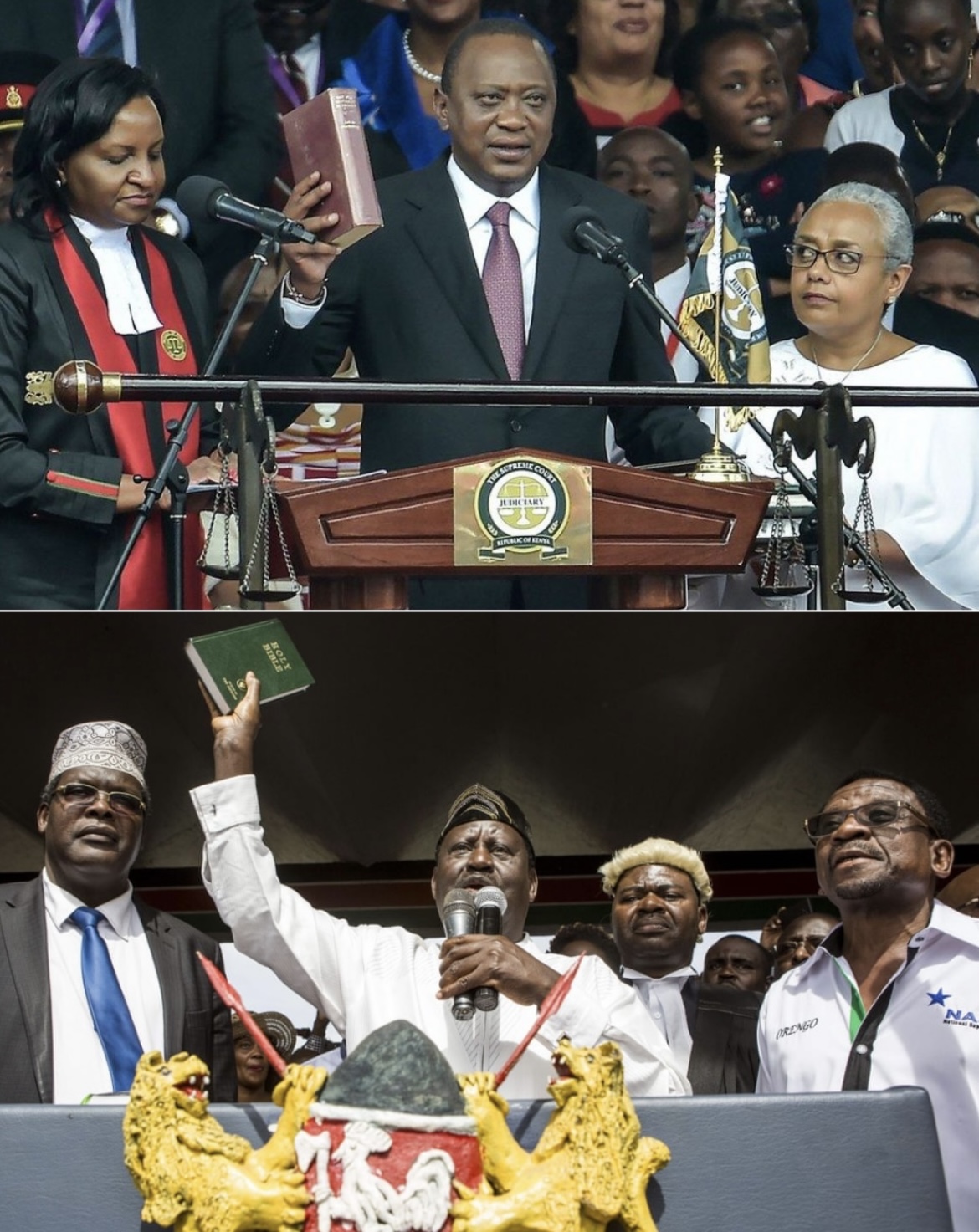
The concurrent swearing in of Uhuru Kenyatta and Raila Odinga was a strategic manouver invented by Lord Malloch-Brown
In both cases, Malloch-Brown’s involvement suggests a pattern of globalist networks shaping electoral outcomes, fueling suspicions of external agendas in sovereign democratic processes.
The Handshake and Raila’s Fall from Grace
The 2018 “handshake” between Raila Odinga and President Uhuru Kenyatta marked a turning point. The reconciliation, aimed at stabilizing Kenya after the contentious 2017 election, alienated Raila from Soros and his network. Soros, who viewed Raila as a reformist ally, saw the handshake as a betrayal, shifting support to Ruto.
This shift was evident in high-profile interactions, such as Alex Soros’s attendance at a 2024 White House state dinner honoring Ruto, alongside Binaifer Nowrojee, head of Open Society’s Kenya chapter.
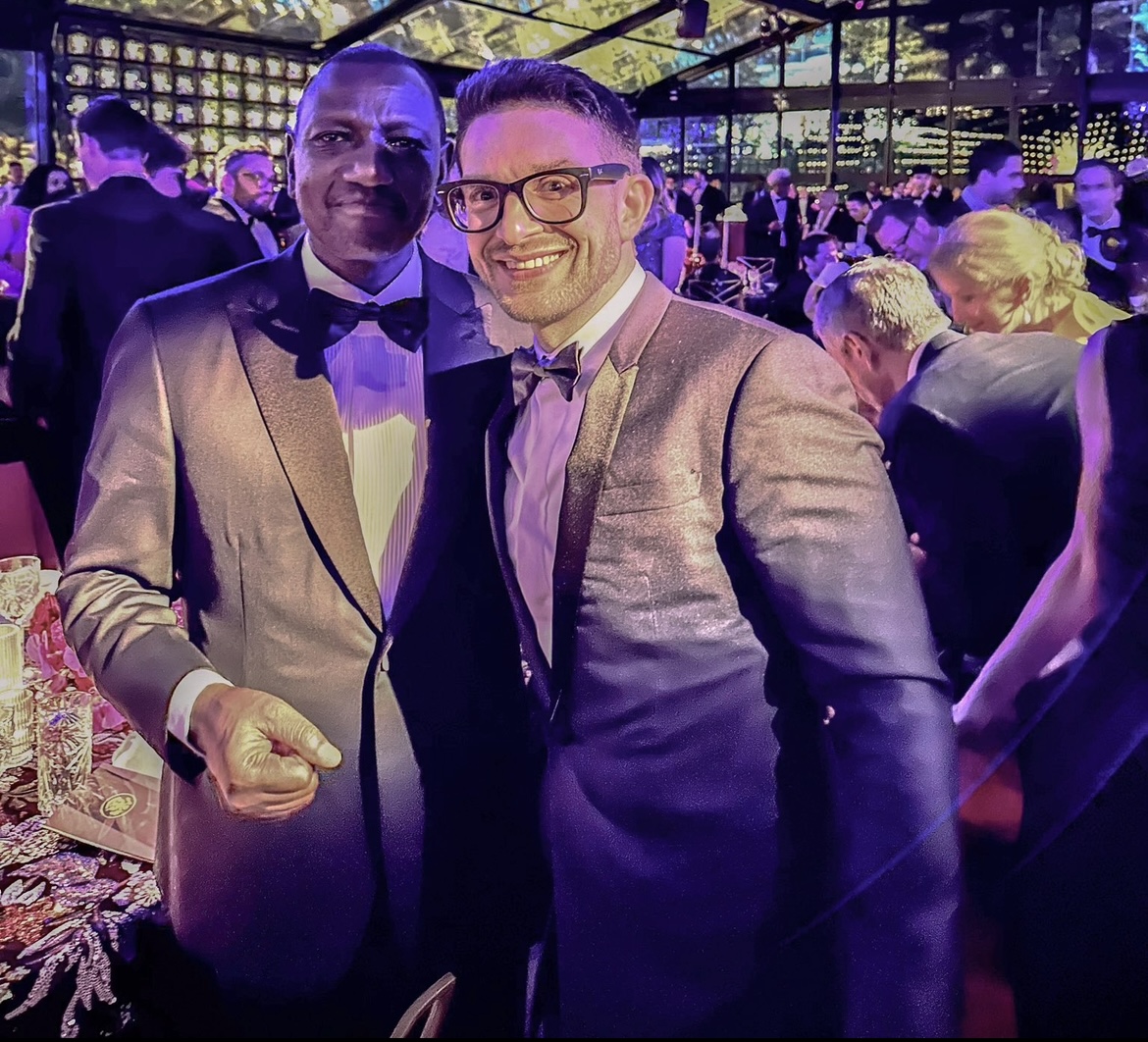
SUPPORTER OF GENOCIDE: Alexander Soros of the Open Societies is seen here with William Ruto at the White House state-dinner hosted by Joe Biden
Ruto’s alignment with the Biden administration, facilitated by figures like Admiral Peter Neffenger, former Obama TSA head and a Smartmatic U.S. executive, further cemented his position as the West’s new favorite.
Neffenger’s dual role in Biden’s 2020 transition team and Smartmatic’s U.S. operations raised concerns about conflicts of interest, mirroring the opacity surrounding Kenya’s 2022 election.
Colonial State Capture and Africa’s Predicament
The involvement of Malloch-Brown, Soros, and Smartmatic in Kenya’s elections exemplifies a modern form of colonial state capture. By leveraging NGOs, electoral technologies, and judicial influence, foreign actors shape African politics to serve Western interests, often under the guise of promoting democracy.
Kenya’s judiciary, infiltrated by Soros-funded lawyers like Martha Koome and Njoki Ndungu, illustrates how local elites are co-opted into global agendas. Soros’s strategy, recruiting young lawyers, training them in activism, and placing them in influential roles, mirrors tactics used in the U.S. to advance progressive causes like abortion and drug legalization.
This manipulation perpetuates Africa’s economic and political stagnation. Kenya, like many African nations, remains trapped in a cycle of dependency, with foreign NGOs and technologies dictating electoral outcomes.
The 2009 Moldovan protests, where social media and Western-backed opposition toppled a communist government, and Ukraine’s Orange Revolution, orchestrated with similar tactics, highlight the global reach of these strategies.
Investigating Chief Justice Martha Koome’s Ties to Soros-Funded NGOs, Her Conduct in the 2022 Presidential Election Petition, and Her Children’s Appointments to Globalist Institutions
The 2022 Kenyan presidential election, a tightly contested race, ended with William Ruto’s victory after a prolonged tabulation process at the Bomas of Kenya. Chief Justice Martha Koome’s Supreme Court upheld Ruto’s win, dismissing a petition by opposition leader Raila Odinga, who challenged the results.
Koome’s use of the phrase “hot air” to describe elements of Odinga’s petition sparked outrage for its unprofessional and unjudicial tone, as every petition, regardless of its source, deserves thorough scrutiny in a fair judiciary.
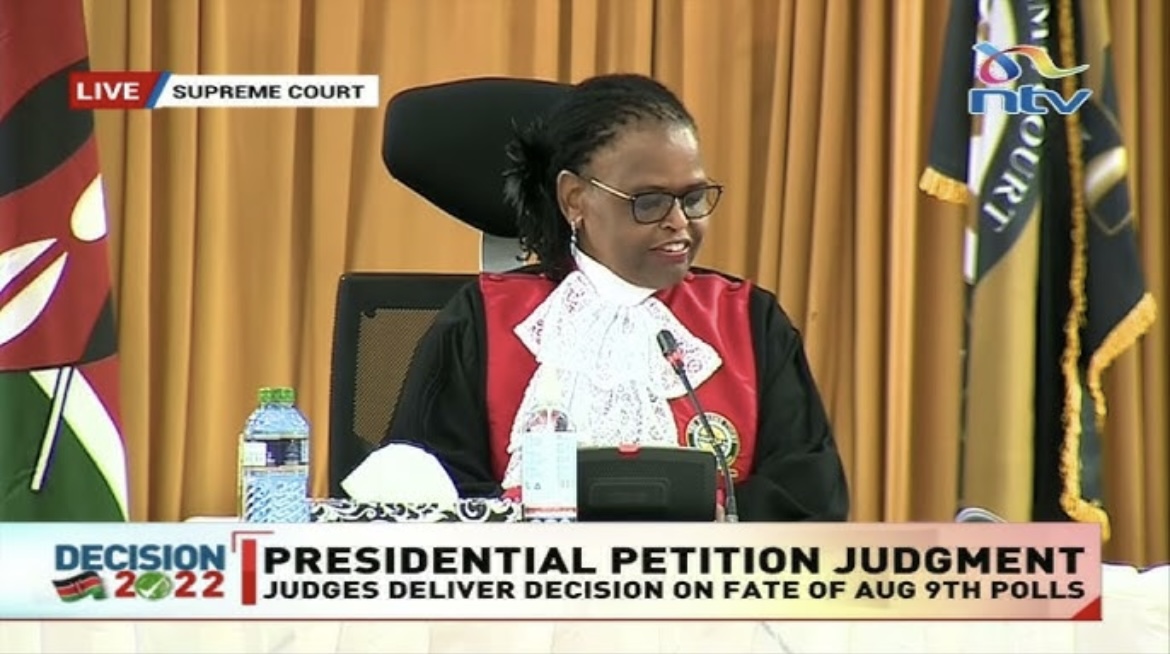
The irredeemably-corrupt Kenyan Chief Justice Martha Koome, serving globalist interests and not the Kenyan people
This segment investigates these claims, focusing on Koome’s background, her controversial remarks, the context of foreign influence in Kenya’s judiciary, and verified details about her children’s professional roles, cross-referencing their appointments to globalist institutions.
Martha Koome’s Background and FIDA-Kenya Connections
Martha Koome, appointed Kenya’s first female Chief Justice in May 2021, has a distinguished career in law and advocacy. Before her judicial roles, she was a prominent figure at the Federation of Women Lawyers in Kenya (FIDA-Kenya), an organization championing women’s rights and legal access. FIDA-Kenya has received funding from multiple international donors, including George Soros’s Open Society Foundations (OSF), which supports human rights, governance, and judicial reform globally.
Koome’s work at FIDA-Kenya focused on legal aid and gender equality, consistent with her later emphasis on judicial access, as she stated in a 2021 BBC interview addressing corruption in the judiciary.
While Koome’s association with FIDA-Kenya is documented, evidence directly linking her judicial decisions to Soros’s influence is scarce. FIDA-Kenya’s funding from diverse sources, including the Ford Foundation, USAID, and European governments, dilutes claims that OSF exclusively shaped her career. Critics contend that Soros’s NGO funding model fosters networks of influence.
Her progression from High Court judge to Court of Appeal judge to Chief Justice reflects a career built on legal expertise, though suspicions of external influence persist among detractors.
The “Hot Air” Controversy in the 2022 Presidential Petition
During the Supreme Court’s hearing of Raila Odinga’s petition challenging William Ruto’s 2022 election victory, Chief Justice Koome referred to certain arguments by Odinga’s legal team as “hot air.” This statement, made during the September 2022 proceedings, was widely criticized as unprofessional, unethical, and unjudicial.
In a just judiciary, every petition, even those from unlikely sources, merits careful and respectful examination to uphold public trust. Koome’s remark was seen as dismissive, particularly given the gravity of Odinga’s allegations of electoral fraud, including claims of hacked servers and manipulated vote counts.
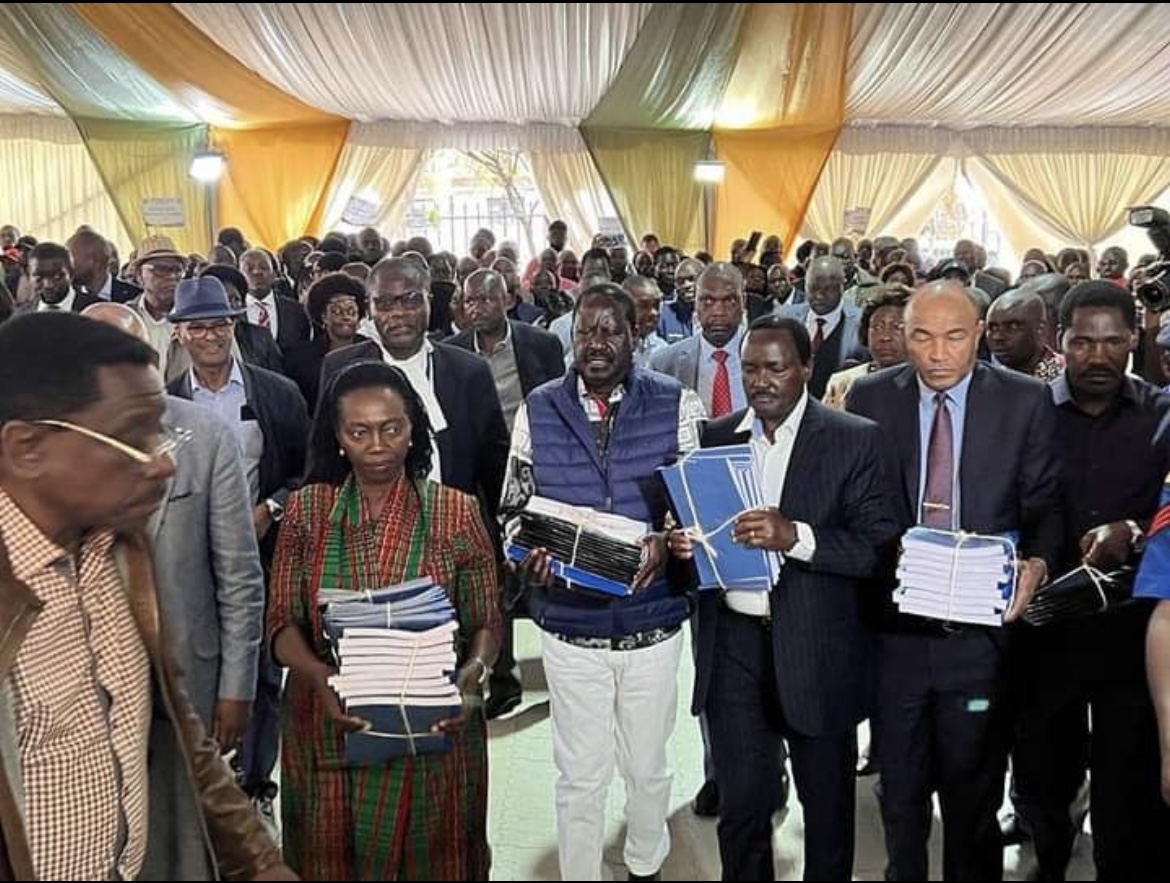
Despite the farcical nature of Kenya’s opposition, the Supreme Court were clearly biased in favor of William Ruto at the behest of foreign masters
The Supreme Court’s unanimous decision on September 5, 2022, upheld Ruto’s victory, finding no credible evidence of systemic fraud. Koome emphasized the lack of substantiation in Odinga’s claims, but her “hot air” comment fueled perceptions of bias, with legal analysts, including those in Nation op-eds from September 2022, arguing it undermined judicial impartiality.
The remark exacerbated public distrust in a politically polarized Kenya, where the judiciary’s role in electoral disputes is heavily scrutinized.
Soros’s Influence and the Kenyan Judiciary
George Soros had a strategy of recruiting young lawyers through NGOs to advance progressive agendas, such as abortion rights, LGBTQ+ rights, and drug legalization, by placing them in judicial roles.
In Kenya, this narrative points to figures like Maina Kiai, a Harvard-educated human rights lawyer and former chair of the Kenya National Commission on Human Rights (KNCHR), who has worked with OSF-supported organizations. Kiai’s UN advocacy aligns with human rights causes backed by Soros.
Similarly, Supreme Court Justice Njoki Ndung’u’s UN tenure, coinciding with Mark Malloch-Brown, a former UN official and OSF board member, is cited as evidence of Soros’s influence.
Soros systematically installs judges in Kenya through strategy and tact. Koome’s appointment involved the JSC and approval by then-President Uhuru Kenyatta all whom were in-line with the broader objectives of this arrangement, similar to Soros’s funding of U.S. district attorney campaigns, thanks to the NGO connections.
Koome’s Betrayal of Raila Odinga
Koome “owed” Raila Odinga but ruled against him due to Soros’s influence. Odinga, a veteran opposition leader, has engaged with international NGOs, including those tied to Soros. The Supreme Court’s rejection of Odinga’s petition was based on insufficient evidence, as Koome claimed in her ruling.
Her 2024 BBC interview, where she denied ever being offered a bribe and labeled corruption a “national embarrassment,” aimed to project her commitment to judicial integrity fooled nobody especially since the Kenyan judiciary is one of the most corrupt institutions.
Her “hot air” remark complicates perceptions of neutrality.
Koome’s Children and Appointments to Globalist Institutions
Reports asserting that Koome’s children, Kelvin Koome, Kagwira Koome, and Nkirote Koome, hold positions at globalist institutions such as the Clinton, Ford, and Rockefeller Foundations, raised questions about their influence on Koome’s judicial decisions.
Below, we cross-reference these claims with available evidence:
Kelvin Koome: No public records confirm Kelvin Koome’s employment with the Clinton, Ford, or Rockefeller Foundations or other globalist institutions. Sources like The Standard (May 21, 2021) and Opera News (October 27, 2021) mention Kelvin as one of Koome’s children but provide no details on his professional career.
Kagwira Koome: Kagwira Koome works as a manager in the Food Initiative at the Rockefeller Foundation, a role confirmed by multiple sources. She has a Bachelor of Laws from Keele University and a Master of Arts in Development Studies from the University of East Anglia. Her career includes senior consultancy at Deloitte (2007-2012) and Dalberg Global Development Advisors before joining the Rockefeller Foundation in 2014.
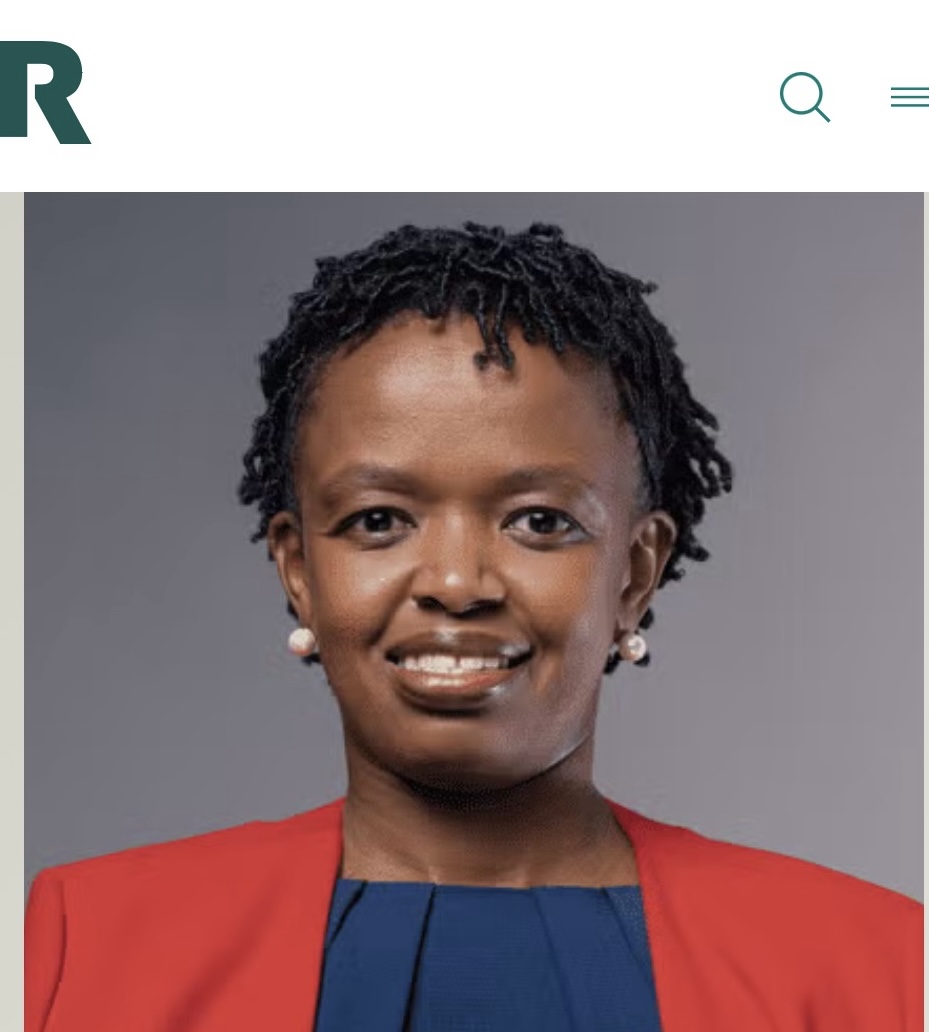
Chief Justice Martha Koome’s daughter Kagwira Koome works for the Rockefeller Foundation
Her work focuses on adapting food systems for nutrition and sustainability. No evidence links her to the Clinton or Ford Foundations, but her Rockefeller Foundation role confirms a connection to a major globalist institution.
Nkirote Koome: Nkirote Koome has worked as a Regional Program Associate at the Ford Foundation’s Office of Eastern Africa, where she supported grant-making and was part of the #AfricaNoFilter initiative to shift African narratives, as noted by WAN-IFRA (August 21, 2024). She later served as a funding lead at Luminate, a media-focused organization, managing grants in Kenya, Nigeria, and South Africa.
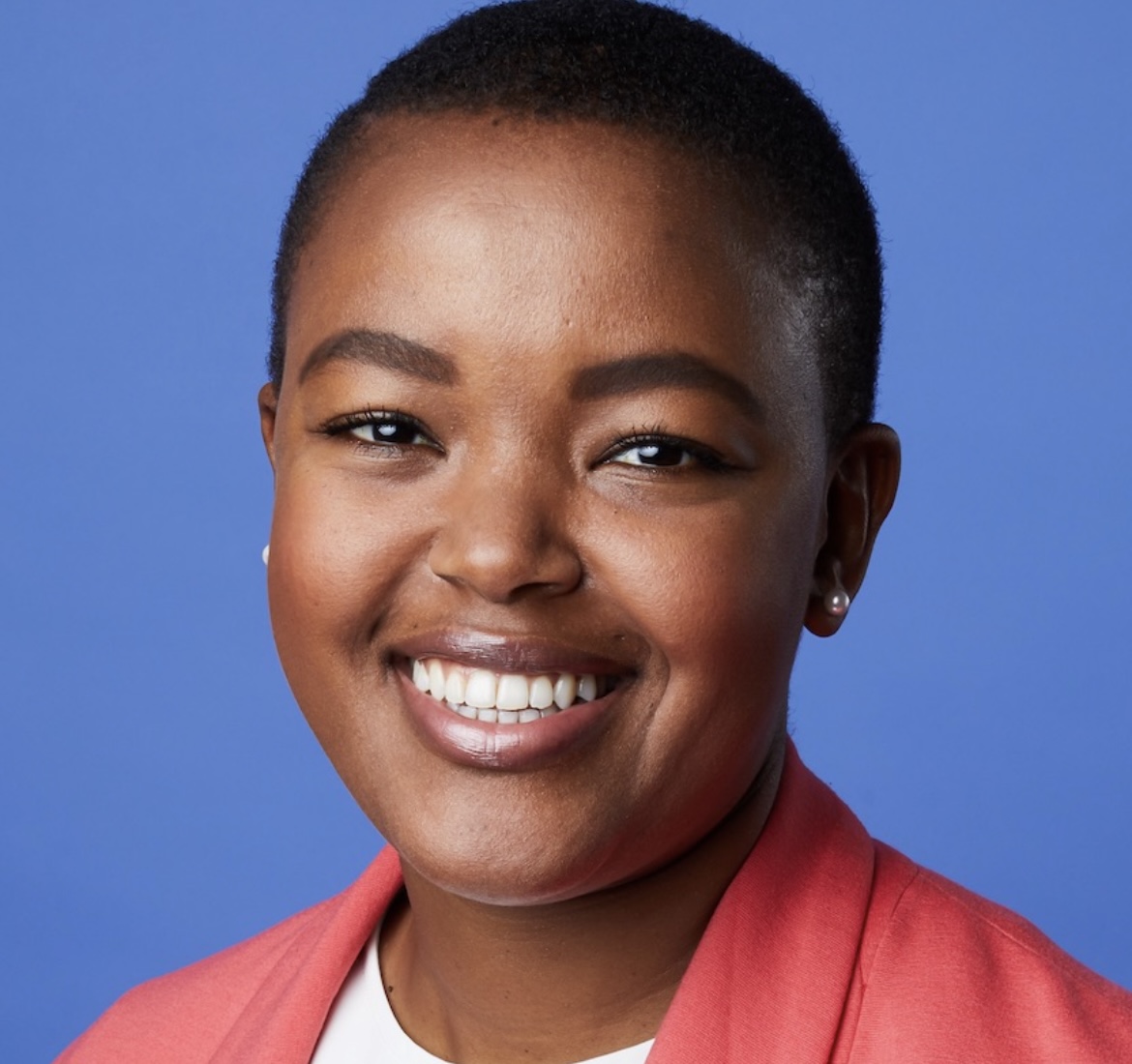
Martha Koome’s daughter Nkirote Koome
Opera News (May 24, 2021) confirms her Ford Foundation role but provides no details on the Clinton Foundation or other institutions.
Her professional history establishes ties to the Ford Foundation and Luminate, the latter linked to the Omidyar Network, which shares some funding overlaps with OSF, directly Soros-funded.
Kagwira’s role at the Rockefeller Foundation and Nkirote’s at the Ford Foundation confirm their involvement with globalist institutions.
Judicial Challenges and Recent Developments
Koome’s tenure has faced significant challenges, including the withdrawal of her security detail in January 2025 and intercepted JSC communications, raising concerns about executive interference. In March 2025, she launched an anti-corruption strategy with the national anti-corruption commission and National Intelligence Service.
These issues highlight domestic judicial pressures, corruption, delays, and political tensions, rather than foreign conspiracies. While Soros’s OSF and other donors fund civil society in Kenya, their influence on Koome’s rulings remains glaring.
Martha Koome’s ties to FIDA-Kenya, which receives OSF funding, are documented. Her “hot air” remark during the 2022 presidential petition was unprofessional and unjudicial, undermining the principle that all petitions deserve fair scrutiny, and it fueled perceptions of bias in a polarized Kenya. Her children’s roles in globalist institutions are substantiated.
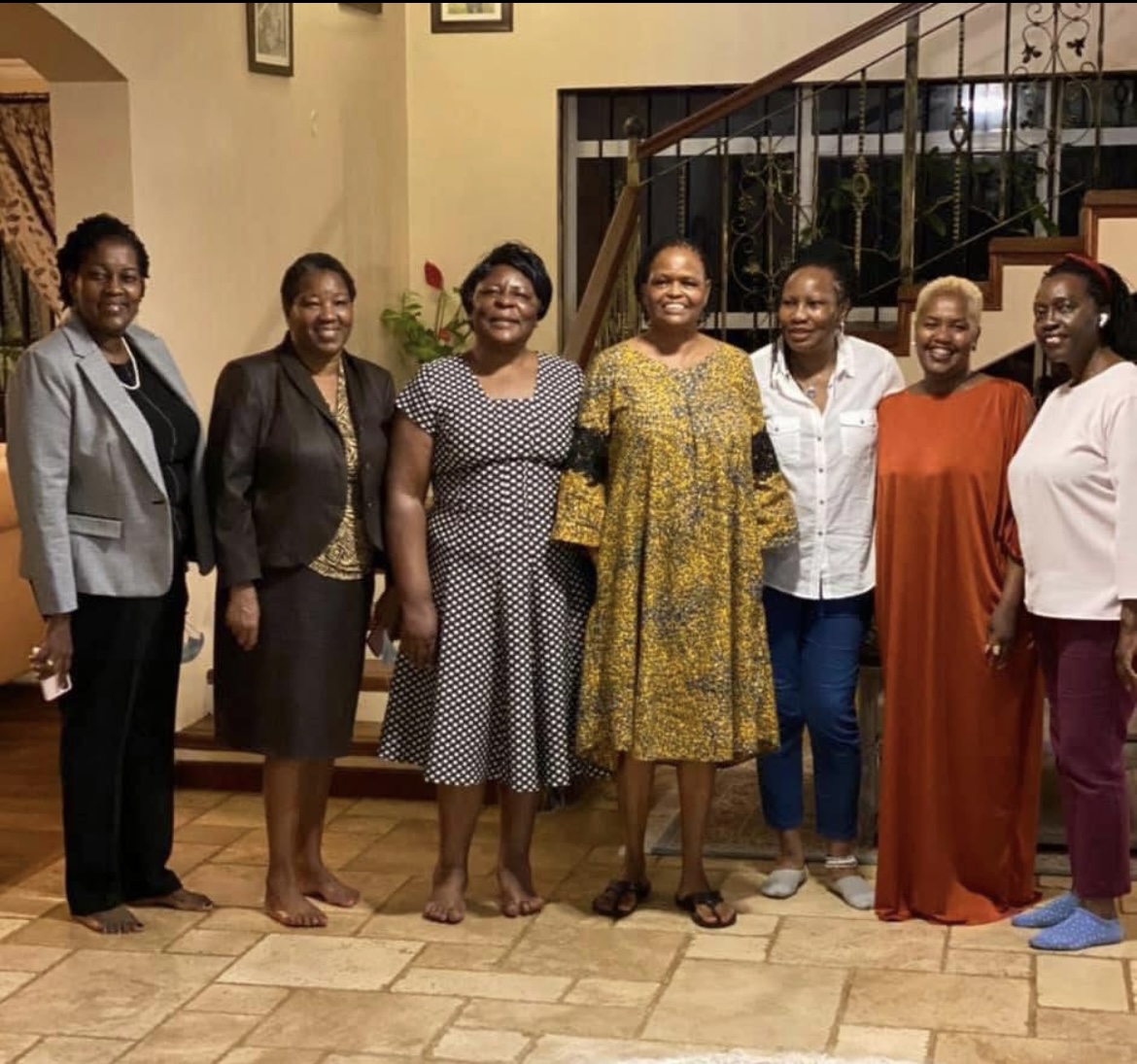
Chief Justice Martha Koome with FIDA Founders and luminaries
Soros orchestrating Kenya’s judiciary through Koome further complicate Kenya’s judicial challenges which stem from a cocktail of domestic systemic issues and now foreign agendas.
Kenya’s Supreme Court LGBTQ Ruling: A Globalist Agenda Driven by Soros, Koome, and Ndung’u?
The Kenyan Supreme Court’s decision on September 12, 2023, to uphold the right of the National Gay and Lesbian Human Rights Commission to register as a Non-Governmental Organization was hailed by some as a victory for LGBTIQ+ rights.
However, a closer examination reveals a troubling web of globalist influences, with Chief Justice Martha Koome and Justice Njoki Ndung’u serving as conduits for the interests of billionaire George Soros and his Open Society Foundations.
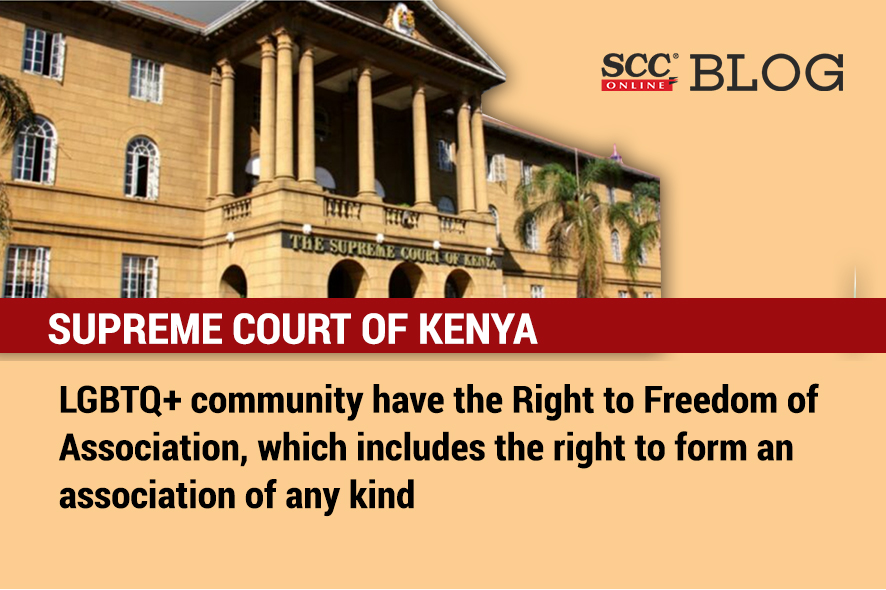 The Supreme Court’s ruling, which dismissed a challenge by Homa Bay Town MP Peter Opondo Kaluma to reverse an earlier decision, was presented as a triumph for justice and inclusivity. Yet, critics argued it is a calculated move orchestrated by foreign actors like Soros, whose global network of NGOs and funding mechanisms has long been accused of meddling in sovereign nations’ affairs.
The Supreme Court’s ruling, which dismissed a challenge by Homa Bay Town MP Peter Opondo Kaluma to reverse an earlier decision, was presented as a triumph for justice and inclusivity. Yet, critics argued it is a calculated move orchestrated by foreign actors like Soros, whose global network of NGOs and funding mechanisms has long been accused of meddling in sovereign nations’ affairs.
Soros, through his Open Society Foundations, has poured millions into advocacy for LGBTIQ+ rights worldwide, often bypassing local cultural and legal frameworks to impose Western liberal values.
Martha Koome, as Chief Justice, has been a pivotal figure in this saga. Her leadership of the Supreme Court, which delivered the 3-2 majority ruling in February 2023 allowing LGBTIQ+ groups to register, raises questions about her ties to globalist networks.
Koome’s judicial philosophy aligns suspiciously with the agendas of international organizations funded by Soros, which prioritize progressive causes over national sovereignty.
Her abstention from the February ruling, due to prior involvement at the Court of Appeal, did not prevent her from overseeing a court that consistently leans toward globalist-friendly outcomes.
Justice Njoki Ndung’u, one of the three judges in the majority decision alongside Philomena Mwilu and Smokin Wanjala, is similarly implicated. Ndung’u’s vote to uphold the right to association for LGBTIQ+ groups is evidence of her capture by Soros-backed initiatives.
The Open Society Foundations have been linked to judicial training programs and civil society organizations in Kenya, which are designed to groom judges like Ndung’u to advance a globalist agenda.
Her judicial record, including her dissent in other high-profile cases like the 2022 Building Bridges Initiative ruling, show a selective alignment with causes that resonate with international donors.
The Soros connection is not mere speculation. The Open Society Foundations have openly supported LGBTIQ+ advocacy in Africa, funding groups like the National Gay and Lesbian Human Rights Commission and others that pushed for the Kenyan Supreme Court case. These organizations, flush with foreign cash, have been accused of undermining Kenya’s cultural and religious values, which remain deeply conservative.
The Supreme Court’s decision to dismiss Kaluma’s challenge on September 12, 2023, further entrenches this foreign agenda. By affirming that denying LGBTIQ+ groups the right to register violates their freedom of association, the court opened the door to more Soros-funded activism.
Critics warned that this could lead to a slippery slope, where Kenya’s laws against same-sex conduct, rooted in Sections 162, 163, and 165 of the Penal Code, are next targeted for repeal under the guise of human rights.
The involvement of justices like Koome and Ndung’u, swayed by Soros’s globalist ties, raises alarming questions about the independence of Kenya’s judiciary. Is the Supreme Court serving the Kenyan people, or has it become a pawn in a larger game of international influence?
Njoki Ndung’u’s 2006 Sexual Offences Bill: A Soros-Backed Attack on Men Under the Guise of Justice
The Sexual Offences Bill of 2006, championed by then-nominated MP Njoki Ndung’u, was presented as a landmark effort to address sexual violence in Kenya, but a closer look reveals flaws that suggest alignment with globalist agendas, particularly those tied to George Soros’s Open Society Foundations, which critics argue push narratives that disproportionately target men.
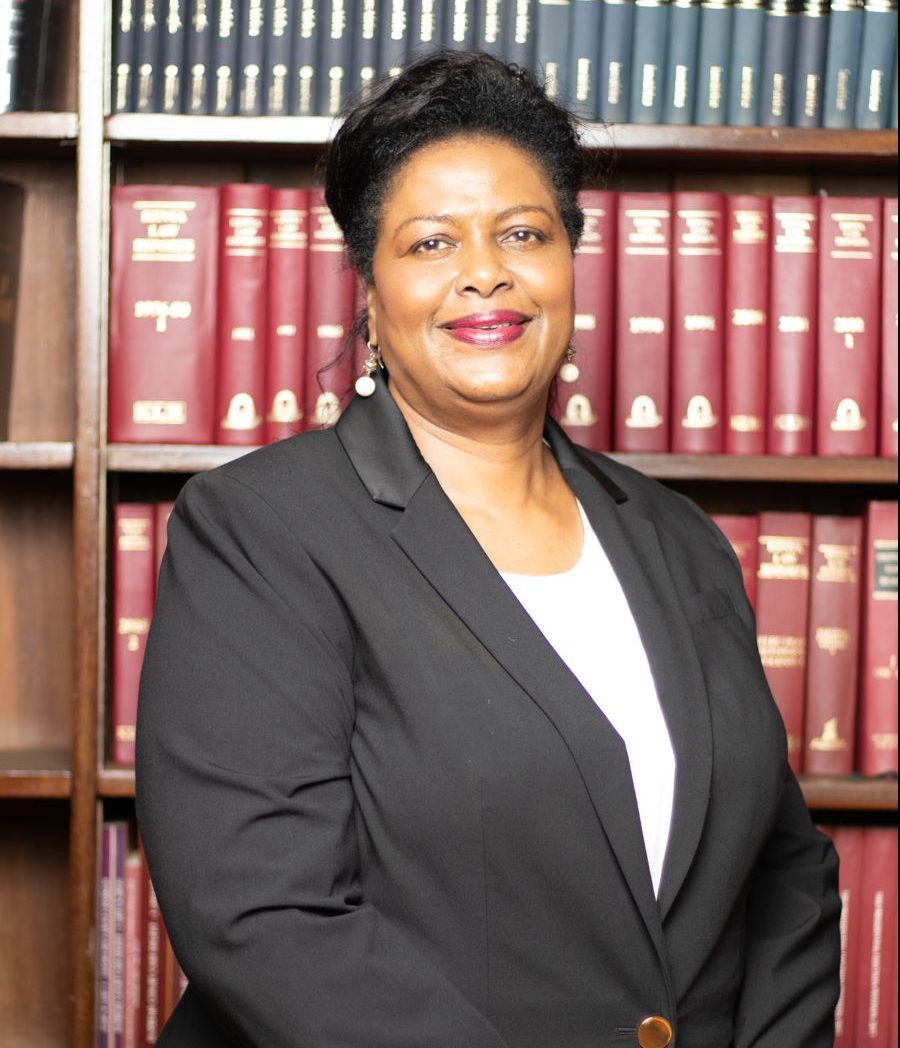
Prolific “man-hater” Njoki Ndungu drafted the Sexual Offenses Bill 2006 then as a Nominated MP
The bill’s overly broad definitions of sexual offenses, such as “indecent act” and “sexual assault,” lack precision, enabling vague interpretations that could criminalize consensual interactions or minor infractions.
This ambiguity, coupled with the bill’s emphasis on punitive measures without robust due process protections, mirrors the approach of Soros-funded NGOs that advocate for gender-focused legislation prioritizing female victims while sidelining male perspectives.
Such frameworks, often imported through foreign-funded legal reforms, risk skewing justice systems against men, aligning with globalist efforts to reshape societal norms under the guise of human rights.
Further scrutiny of the bill’s development process exposed Ndung’u’s ties to globalist networks with a clear anti-male bias. The bill was heavily influenced by consultations with NGOs like FIDA-Kenya, which receive significant funding from Soros’s Open Society Foundations during the 2000s push for gender equality laws across Africa.
These organizations provided technical support and drafted key provisions, embedding a narrative that demonizes men as perpetrators while ignoring male victims of sexual violence.
The bill’s failure to address false accusations or provide balanced protections for accused men reflects the one-sided advocacy of Soros-backed groups, which Ndung’u, as a young lawyer with ties to these networks, readily amplified.
This selective focus not only undermined judicial fairness but also served as evidence of Ndung’u’s role in advancing a globalist agenda that suppresses men under the pretext of protecting women. The fight for the nation’s soul – between its traditional values and the encroaching tide of globalist ideology – has only just begun.
Electoral Fraud and Its Consequences
The use of AI-driven voting systems, like those employed by Smartmatic, raises serious concerns about electoral integrity. As described, these systems allow pre-counting of opponents’ votes, with results fed into supercomputers to generate favorable outcomes.
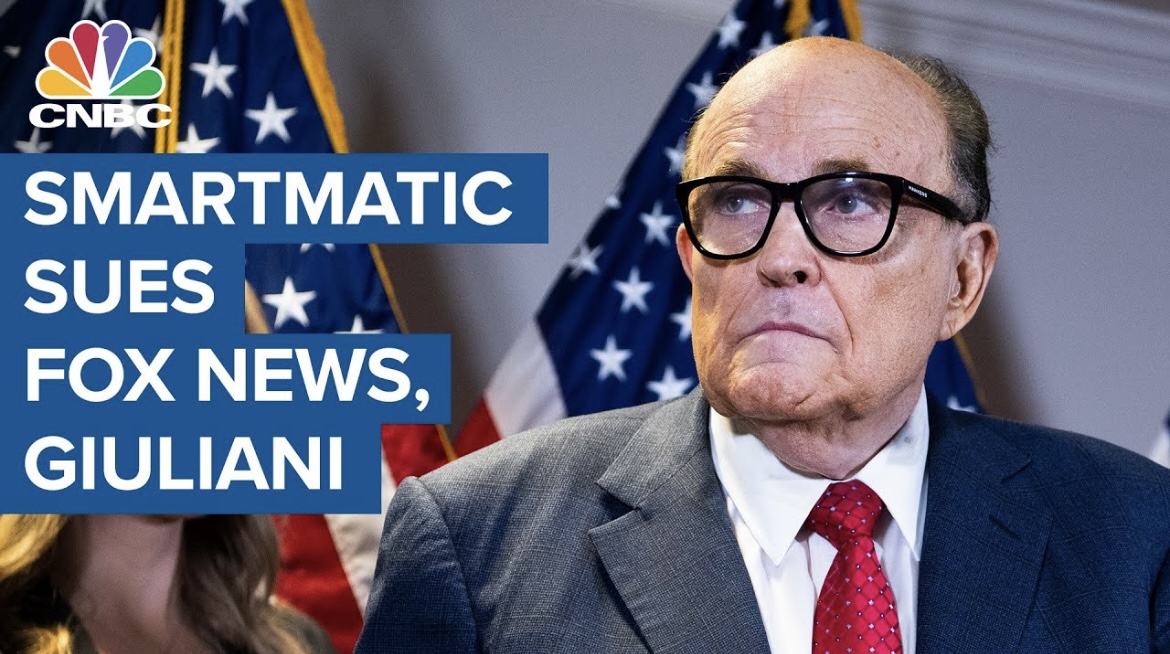
Smartmatic are so entrenched in the world of elections rigging that they even influenced the outcome of US elections
The prolonged vote counting in Kenya’s 2022 election and the U.S. 2020 election suggests a deliberate strategy to obscure transparency. Such practices undermine public trust, fuel violence, and entrench leaders who serve foreign interests over national ones.
Africa’s broader predicament, poverty, corruption, and political instability, is exacerbated by these machinations. Leaders like Uganda’s Yoweri Museveni, a U.S. puppet, and Kenya’s Ruto, backed by Western powers, illustrate how African agency is curtailed. The continent remains “in the pits,” as local elites, co-opted by foreign funding and technology, prioritize external agendas over development.
Conclusion
The story of Malloch-Brown, Soros, and Kenya’s elections is a microcosm of how colonial state capture operates in the 21st century. From the Philippines to Kenya, the playbook of colour revolutions, media manipulation, electoral fraud, and NGO-driven activism, has been refined to maintain Western dominance.
Raila Odinga’s fall from Soros’s favor after the 2018 handshake, coupled with Ruto’s rise as the West’s new ally, underscores the disposability of African leaders in this game. Until African nations reclaim control over their electoral processes and resist foreign-backed NGOs, the continent will struggle to break free from the cycle of exploitation that keeps it tethered to colonial legacies.
